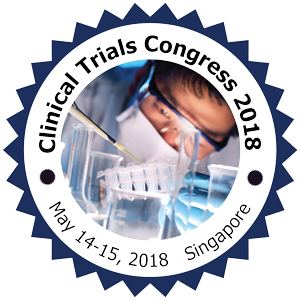
Gautam Sethi
National University of Singapore, Singapore
Title: Multifaceted role of gamma tocotrienol in cancer therapy
Biography
Biography: Gautam Sethi
Abstract
Gamma-tocotrienol, a member of Vitamin E superfamily has attracted great attention of late for its anti-proliferative and anti-carcinogenic potential against different cancers. For example, our group has recently reported that anti-proliferative and chemosensitizing effects of g-tocotrienol are associated with its ability to suppress activation of signal transducers and activator of transcription 3 (STAT3), a pro-inflammatory transcription factor that plays a pivotal role in the survival, proliferation, angiogenesis and chemoresistance of hepatocellular carcinoma. However, the potential of gamma-tocotrienol to overcome chemoresistance in gastric cancer, which is one of the deadliest cancers in Asia-pacific region, has never been explored before. Hence, we investigated the efficacy of gamma-tocotrienol in combination with capecitabine to modulate tumor growth and survival in xenograft mouse model. Gamma-tocotrienol also inhibited expression of various oncogenic proteins, induced PARP cleavage and inhibited NF-κB activation in gastric cancer cells. In vivo studies using xenograft model of human gastric cancer demonstrated that gamma-tocotrienol alone suppressed tumor growth and this effect was further potentiated in conjunction with capecitabine. As compared to the vehicle control, gamma-tocotrienol further suppressed the NF-κB activation and expression of cyclin D1, COX-2, ICAM-1, MMP-9 and survivin in tumor tissues obtained from treatment groups. Additionally we noted, that gamma tocotrienol can function as a potent inhibitor of angigogenesis in both HUVEC and HCC cells. Overall our results suggest for the first time that gamma-tocotrienol can potentiate the effects of chemotherapy through modulation of multiple biomarkers of proliferation, and angiogenesis in diverse cancers.

